Source: The Conversation (Au and NZ) – By Sora Park, Professor of Communication, News & Media Research Centre, University of Canberra
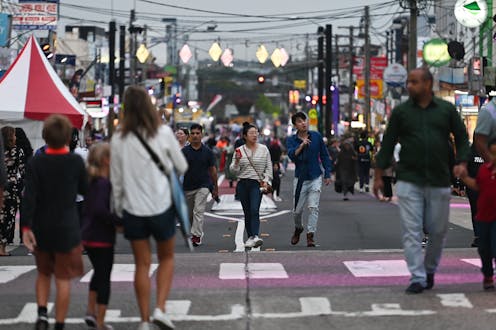
Steven Saphore/ AAP
Belonging can be defined as a settled feeling. It is about feeling attached to the community and society you live in. Not only does belonging make people feel at home, but it can also help people participate in society.
More than 5 million Australians use a language other than English at home, of which 15% have low English proficiency. Almost one-third (28%) are born overseas. How do we ensure they are part of the society?
A new report unveils research examining the impact of news representation on multilingual audiences’ sense of belonging to broader Australian society. The report employed a survey combining face-to-face, phone, and online methods to ask questions of five multilingual groups: Arabic, Cantonese, Italian, Mandarin, and Vietnamese speakers.
Participation in society by sense of belonging
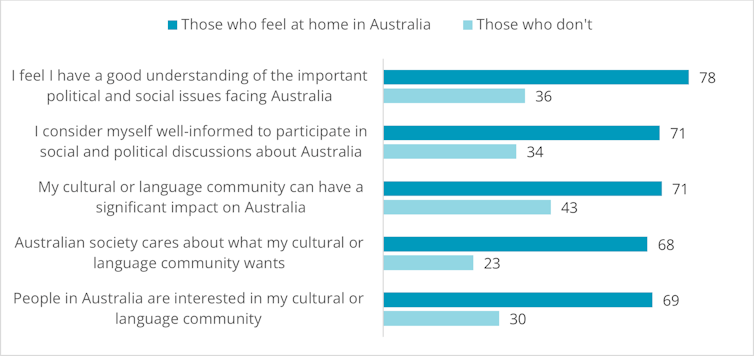
The study found that multilingual Australians’ sense of belonging is closely related to their confidence in participating in society. Compared to those who say they don’t belong, people who feel “at home” in Australia are twice as likely to say they have a good understanding of political and social issues facing Australia.
Furthermore, among those who feel at home in Australia, the majority agree they are well informed (71%) and think their cultural community can have a significant impact on society (71%).
Where does this confidence to participate come from?
We found that time spent in Australia and proficiency in English are both related to belonging.
It seems to take more than 10 years for migrants to find a sense of belonging in Australia; 76% of those who have lived in Australia for more than 10 years feel at home in Australia compared to only 64% of those who arrived here less than five years ago. Having high confidence in English is also a factor.
Sense of belonging by English proficiency and lenght of stay
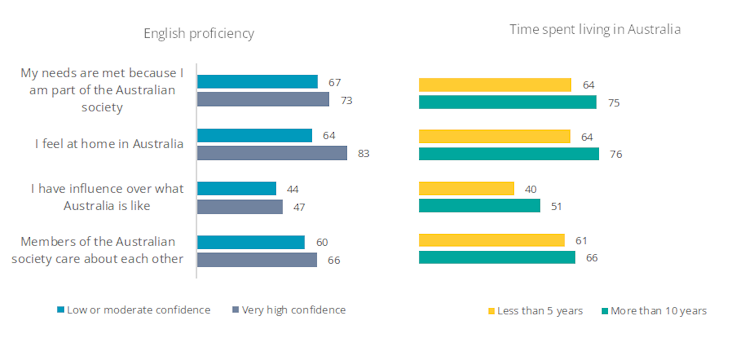
Furthermore, the study found that feeling represented in the news is strongly related to multilingual audiences’ sense of belonging.
Those who feel fairly represented in the news are much more likely to feel a sense of belonging to the Australian society. The majority (86%) of those who feel adequately represented in the news “feel at home”, compared to only 62% of those who don’t feel represented.
This may be because perceptions of news representation foster trust in news. We found that multilingual audiences who believe they are sufficiently and fairly represented in the news have a much higher level of trust in news compared to those who feel under- or misrepresented.
Three-quarters (76%) of multilingual audiences who feel their cultural community is fairly covered in the news say they trust the news. This trust level drops to 40% if they don’t feel they are represented.
Sense of belonging by fair news representation
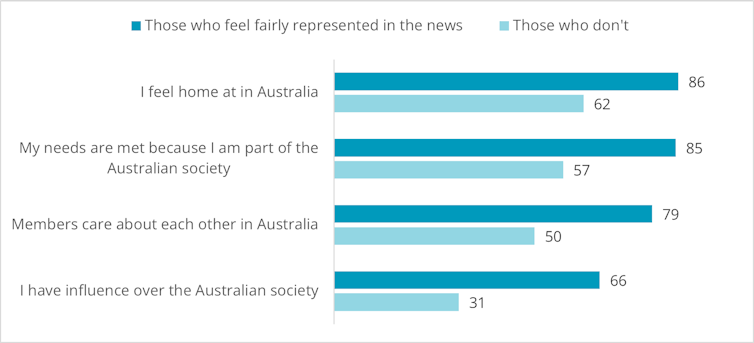
Misrepresented and under-represented in the media
The problem is that many migrants feel under- or misrepresented in Australian news.
Only 42% say news in Australia covers their cultural or language community fairly, while just 38% say there is enough coverage. Even fewer (33%) say journalists in the news represent people like them. Compared to the general public, where more than half (52%) think their ethnic group is portrayed fairly in the news, this is a much lower figure.
There is simply not enough coverage in mainstream news that linguistically and culturally diverse Australians can relate to.
A recent study found 78% of presenters, commentators and reporters had an Anglo-Celtic background. In a survey of Australian journalists, we found less than one-third say there is enough ethnic diversity in their news organisation.
Trust in Australian news media
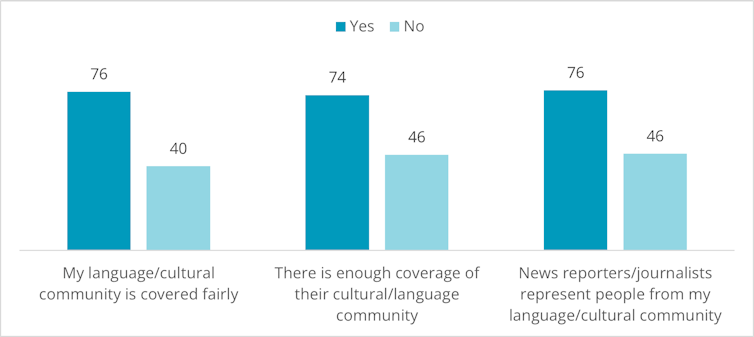
These findings suggest there is room for improved recruitment and reporting practices in the news industry. By providing news that is trustworthy and representative, news media can help all Australians to stay informed. Informed citizens are more likely to be empowered to participate in social and political issues facing society.
Providing relevant, localised information, including news in languages, that multicultural audiences can relate to, is an important way in which the news media can play a role in social cohesion. By reflecting the diverse cultural perspectives and experiences of its audiences, news media can drive a greater sense of belonging.
![]()
Sora Park receives funding from the Australian Research Council, Australian Community Media and Australia Council for the Arts.
Jee Young Lee receives funding from the Australian Research Council, Australian Community Media and Australia Council for the Arts.
Kieran McGuinness has received funding from Google News Initiative and the Australian Communications and Media Authority.
– ref. Fair representation in news makes multicultural Australians feel more at home: new research – https://theconversation.com/fair-representation-in-news-makes-multicultural-australians-feel-more-at-home-new-research-204104






